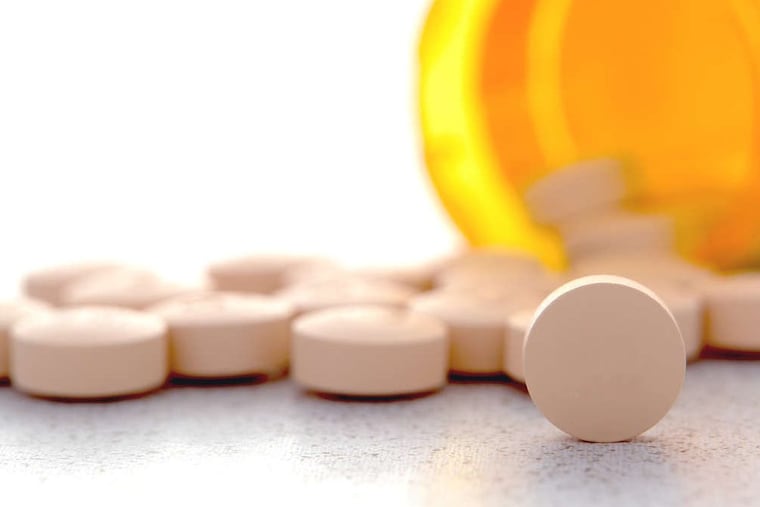How Big Pharma profited from the pandemic l Opinion
The U.S. government cleared the way for the big pharmaceutical firms to develop vaccines, and several made a lot of money doing it. Drug firms also raised prices on other products.

For several years the drug industry’s image among the U.S. public has been worse than that of any other economic sector, according to the Gallup Poll.
That improved last year after the industry ran a massive advertising campaign to promote its role developing the COVID vaccines.
And the companies deserve credit for the vaccines. But make no mistake: The effort by drug companies was hugely profitable, because the government paid for the research, removed all the risk factors and committed billions to pre-approval purchases.
According to a study in the leading journal Health Affairs, “The government essentially removed the bulk of traditional industry risks related to vaccine development: a) scientific failures, b) failures to demonstrate safety and efficacy, c) manufacturing risks; and d) market risks related to low demand.”
The federal government spent between $18 billion and $23 billion to develop all the COVID vaccines, various estimates show. The study’s authors found that amount was given “on top of years of government-funded vaccine research that set the platforms for the current successes.”
In the case of Moderna, federal agencies funded 100% of the $2.5 billion it spent developing its COVID vaccine.
And this year, Pfizer forecast it will receive $54 billion revenue from its COVID vaccine and treatment, a sum larger than the combined revenue for all its other products.
» READ MORE: U.S. pharma companies are staying in Russia as other industries exit
The government made commitments to buy vaccines even before they were developed. These commitments included $1 billion to Johnson & Johnson and $4.95 billion to Moderna. Pfizer, which claims it received no government funding, received advanced purchase commitments for $5.97 billion.
In addition to funding research and development and extending purchase commitments, the government spent more than $100 million for manufacturers to increase their COVID vaccine production, $1 billion for their supplies and equipment, and $3 billion for contract manufacturers to perform aspects of the production process.
Government largesse to pharma was not limited to COVID vaccines. It also extended to COVID treatments. Gilead received $6.5 billion from the National Institutes of Health to develop remdesivir. During its first year, the drug brought in $2.3 billion in revenue for Gilead.
The pharmaceutical industry’s profits are not limited to developments from the COVID pandemic. At a time when two in five Americans who take prescription drugs had to skip a dose at least once over the last year because they couldn’t afford their medication, pharma firms this past January raised list prices on 866 products in the U.S. by an average of 6.6% on cancer, diabetes, and other prescription medicines. The drugmakers raised prices on many top-selling brands by even higher percentages.
Drugmakers have persisted with their steep price hikes throughout the pandemic. As soon as the pandemic started at the beginning of 2020, pharma companies raised prices on more than 860 drugs by about 5%, on average.
In 2021, drug prices in the first seven months of the year jumped 16% compared to the same time in 2020.
Between 2007 and 2018, pharmaceutical companies increased list prices on prescription drugs by 160%.
It’s no wonder that Americans pay two-to-four-times more for prescription medications than people in other countries pay for the exact same drugs.
According to the House Committee on Oversight and Reform, pharmaceutical companies raised the prices of branded prescription drugs by almost four times the rate of inflation from 2016 to 2020.
That wasn’t unusual. From 2012 to 2017, drug companies raised prices for the 20 most prescribed brand-name drugs in the Medicare Part D program by about ten times the average annual rate of inflation during those years.
The Committee directly refuted the drug industry’s claim that sky-high drug prices are justified by the need to innovate. They found that the largest drug companies spend more on payouts for investors (in stock buybacks) and executives (in bonuses and pay) than on research and development, that many blockbuster drugs rely on discoveries funded by taxpayers, and much of companies’ R&D spending focuses on minor changes to extend patent protection and block cheaper competitors.
Meanwhile, the Senate Finance Committee held hearings last week on the “urgent need to lower drug prices in Medicare.” But it’s anyone’s guess what will come from such bipartisan efforts, which have dragged on for years.
Governments in other countries refuse to bow to drugmakers the way the U.S. does. After the pharma companies announced their U.S. price increases in January, Japan this month revised its Drug Price Standard, a listing of the prices its National Health Insurance agency pays for medications. Reductions averaging 9.3% were mandated for the prices of generic (off-patent) medications, while patent-protected brand prices were lowered between 15% to 20%.
Does this aggressive control of drug prices mean Japan is a wasteland for developing new drug advances? Far from it. According to the consultancy CPhI PharmaInsights, Japan has been a big innovator. They found that, “Anti-cancer drugs have been at the forefront of Japanese development… as well as enhanced immune class drugs… [even as the] focus on generics and biosimilars is increasing.”
Some business cheerleaders would reply by citing Adam Smith’s line out of context and claiming that under capitalism, private greed inevitably results in public benefit.
In fact, the global pharmaceutical industry is often a perversion of capitalism in the form of a government subsidized oligopoly that severely limits competition. It is the clearest example of President Biden’s axiom that capitalism without competition is exploitation.
Daniel R. Hoffman, the president of Pharmaceutical Business Research in Glenmoore, Chester County, is the author of “The Global Pharmaceutical Industry,” published last year by Routledge. He can be reached at drhoffman@PBRAconsulting.com